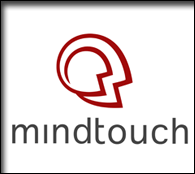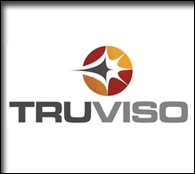It’s all about the people, right?
by Eric Norlin on Sep.26, 2009, under Uncategorized
Recent un-related news events caused me to start pondering one of my favorite topics: human nature. Or more specifically, the assumptions we make about human nature.
Human nature is, of course, a subject of debate. From original sin to the blank slate to the noble savage to more modern notions, there’s certainly no dearth of ideas around what is human nature.
And yet, the whole “enterprise 2.0″ movement seems to gloss right over it. Let me explain…
When the e2.0 pundits speak about the benefits and glories, they move through the listing of what it all can do (productivity, increased efficiency, etc) and then eventually you get down to the inevitable question: “great, what do I buy to make it happen?”
Answer: “wellllllll, it’s not really that simple. You, see the real benefits of e2.0 come from *culture*. You need to worry about the *culture* as much as the technology.”
Questioner: “okay, how do I worry about the culture?”
Answer: “yea - uhm - it’s really all about the *people*.”
And therein lies the rub.
If it’s not about tools it’s about culture, and if culture is all about the people, then at the end of the day e2.0 has to make certain assumptions about the *nature* of those people. I would argue that the current set of assumptions include that people will want to share, that people enjoy working together, that people think helping other people out is a good idea, that knowledge shouldn’t be hoarded, and that you can best succeed by subjugating at least a portion of your interest to the collective good.
(btw: I’m not arguing that I agree or disagree with these things - I’m arguing that e2.0 *assumes* these things.)
However, there are rather large swaths of human history (like, you know, most of it) that would tell us that the above assumptions don’t hold true (at least some of the time).
What if you work in a corporation, and the dirty little truth of the matter is that you have to guard some knowledge closely, watch your back against attack from other employees, and just generally scratch, claw and fight to make your way up the ladder. Worse - what if you enjoy that, and it’s what you want to do with your life? Doubly worse - what if your company is incredibly successful with this culture?
The easy defense from the e2.0 side of the house will be: “yes, but over time in a connected and networked world, the companies that will be hyper-competitive will be those that enjoy the synchronicity of emergent communities based around non-hierarchical sharing structures which empower and enable employees to be managers of customer satisfaction.”
okay - what?
So, it’s all about the people, right?
Look, I believe in the “productivity surge” and larger movement that’s changing the nature of corporations. And I think it really does mean a cultural and person-driven change. But I also think that most of the planning being done around “collaboration” is making some pretty naive assumptions about human nature. Not that we can even qualify what “human nature” means, but SURELY as technologists we can identify the problems in the system (”getting buy-in” for example) and begin discussing solutions that are a little more robust than throwing around loaded terms like “culture” and “people.”
Or we could waste the next couple of years getting hot and bothered over “emergent non-hierarchical sharing systems which empower and enable” only to find ourselves with little more than wikis, databases, and open work spaces at the end of it all.
thoughts? ![]()
As always, you should join us.









